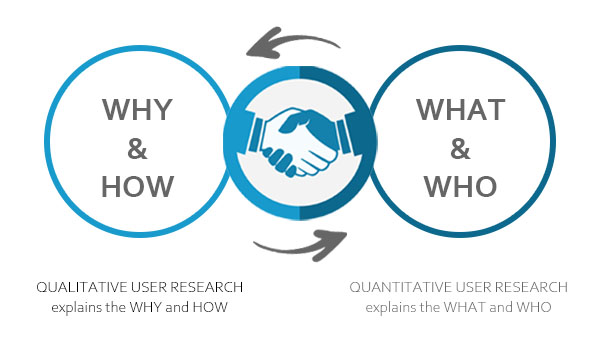Why user research is so important for business results?
The aim of this blog post is to highlight the importance of user research in terms of developing a successful content strategy with the goal of improving business results of every company or any other business entity.
While attending Content Marketing and Community Management lectures, we worked on the content and corporate strategy task of creating a content strategy for a customer. It was a demanding but very interesting task because we were able to get an overview of the whole procedure.
We had been divided into groups and each group worked on a different but related task. The first group started with the analysis of competitors, the second was working on defining customers, the other three groups were working on the pricing model, branding and developing a content strategy for the customer.
I was part of the second group and the task of my group was to analyze target groups of customers, their needs and lay the basis for the next steps in the context of developing a content strategy.
How did we approach the issue? In order to gain insight into the needs of identified target groups, we created an online survey and sent it in the form of a link to our target groups' representatives.
Based on collected answers we conducted the analysis of user needs and definitely have become aware of how important users’ opinion is in defining a successful content strategy for any business improvement.
Business owners and marketers tend to bend their content to their thinking. Don’t fall into this trap. If you do not understand the wants and needs of your audience, there is no way you can be successful with your content. So before you start any content program, you need to have a clear understanding of who the audience is and ultimately what you want them to do. Joe Pulizzi
Why user research is important?
Focus on the user and all else will follow. Google
Companies or other business entities cannot create a great user experience without understanding target users, their needs, aspirations and ways of thinking. We, therefore, use user research – the systematic investigation of users and their requirements – in order to add context and insight into the process of designing our products or services.
Fundamentally, user research helps to:
- develop and design the right things - the key value of user research is to prevent wasting time and money on developing the wrong solutions.
- develop and design things right - it defines guidelines to make the right business decisions.
What user research methods to use?
In any form of research, we are required to either count things and/or talk to people. It is possible to classify research methods using this distinction. These two types of research and their output data are classified as Quantitative and Qualitative. Which of these two methods we use depends on which questions we want to be answered.
The following table provides a breakdown of the key features of each of these categorisation of research method and data.

What are the benefits of user research?
There are a bunch of benefits of conducting user research but just to mention some of them:
- Increase in conversion rates, user engagement and profit
- Contributes to Customer loyalty and reputation
- Increase user productivity - making it easy to complete tasks
- Provide more efficient/less costly development process
- Reduce user support requirements
- Provide wider benefits to the organisation - sales and marketing efforts are tailored around users' needs
What do we risk if we skip user research?
Businesses know the price of wrong decisions - time and brand reputation loss and sometimes even entire business loss. Skipping user research can often result in poor business and lead to subjective and wrong conclusions in designing products and services.
Here are some risks:
- Obsession with design trends - designers often get caught up in the latest design trends and feel that if they don’t follow, then they are not keeping up with the times. It is much more important that people can use our products efficiently.
- Emotional attachment - designers and product owners often allow emotional involvement to cloud their ability to see where improvements can be made.
- Personal opinions - many leaders make decisions based on deeply held opinions and let ego take over understanding user needs.
All of the above identifies user research as a very important and necessary stage in the process of developing a new product, service or software with a bigimpact on the overall business result. Finally, to conclude, perhaps the title of this blog could be extended as follows:
Good user research = good design = good user experience = Good business
Sources:
Pulizzi, J. (2014). Epic Content Marketing. McGraw-Hill Education
Hall, E. (2013). Just Enough Research. A Book Apart, New York
MacDonald, S. & Headlam, N. (2008). Research Methods Handbook. CLES, Manchaster


Write a comment